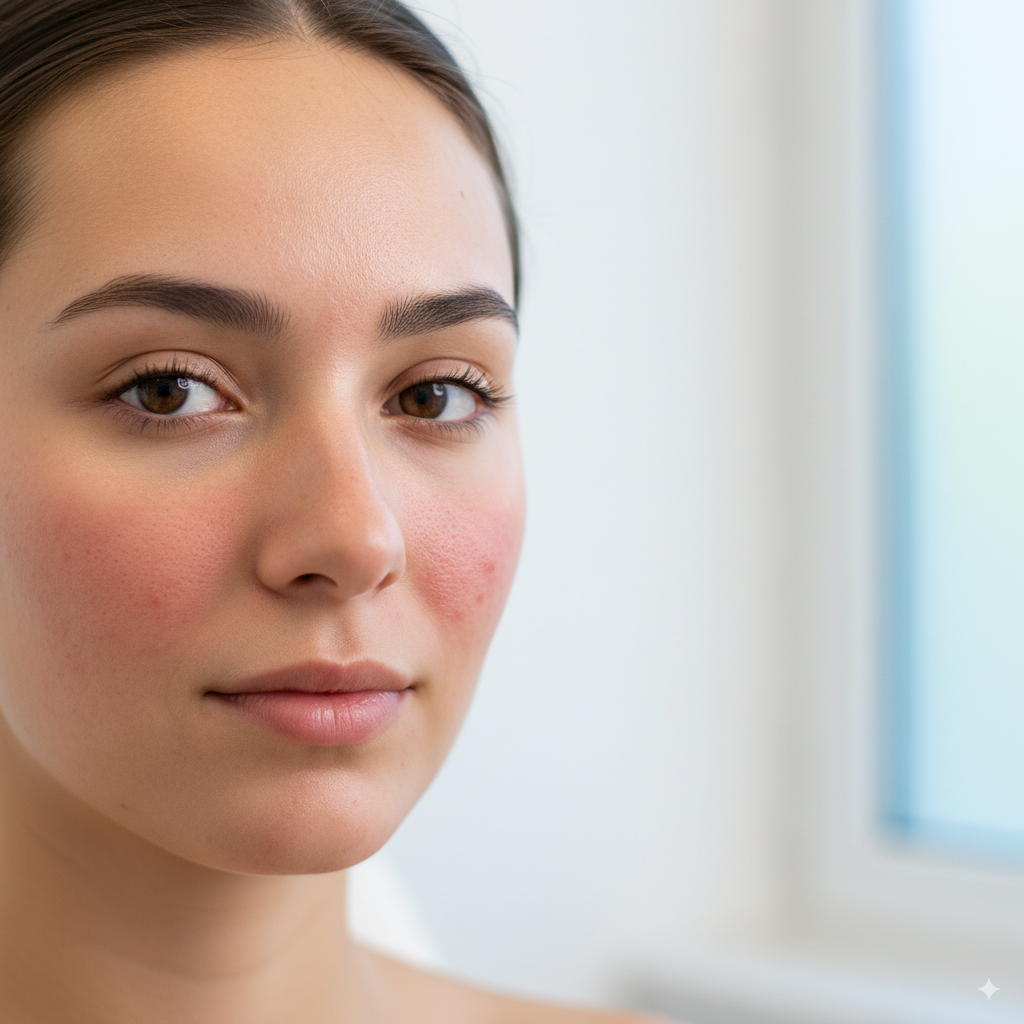Irritation and Redness: Causes, Symptoms, and Relief
What Is Skin Irritation and Redness?
Skin irritation occurs when your skin reacts to external or internal triggers, resulting in discomfort, itching, or a burning sensation. Redness develops when blood vessels under the skin surface dilate due to inflammation. These two concerns often appear together, signaling a weakened skin barrier that requires extra care.

5 Common Causes of Skin Irritation and Redness
Skin irritation doesn’t come from one source—it can be triggered by multiple factors, such as:
Harsh skincare products – cleansers with sulfates, alcohol-based toners, or strong fragrances.
Weather changes – extreme heat, cold winds, or low humidity levels.
Allergic reactions – food allergies, fabrics, or chemicals in cosmetics.
Medical conditions – eczema, rosacea, or psoriasis often cause persistent redness.
Lifestyle choices – poor diet, smoking, lack of sleep, or stress can worsen irritation.
Key Symptoms to Watch For
Identifying early symptoms helps in avoiding complications. Look out for:
Dryness and tightness after cleansing
Burning or stinging sensation when applying skincare
Flaky, rough, or uneven patches
Persistent redness, even without makeup
Swelling or unexpected breakouts
Sensitivity that increases with weather or product changes
Natural Remedies for Irritation and Redness
If you prefer gentle, at-home solutions, natural remedies can help calm irritation and redness:
Aloe Vera Gel – Its cooling effect soothes burning sensations and restores hydration.
Green Tea Extract – Rich in antioxidants, it reduces redness and inflammation.
Oatmeal Masks – Help lock in moisture and reduce itchiness.
Chamomile Compress – Provides a calming effect on sensitive skin.
These remedies are safe for most skin types, but always perform a patch test before applying them to your face.
How to Alleviate Irritation and Redness
1. Switch to Gentle Products
Use a sulfate-free cleanser and fragrance-free skincare. Ingredients like aloe vera, chamomile, and oat extract soothe irritation.
2. Moisturize Properly
Moisturizers with ceramides, glycerin, and hyaluronic acid help repair the skin barrier and lock in hydration.
3. Protect with Sunscreen
UV rays damage the skin and worsen redness. A broad-spectrum SPF 30 or higher is essential every day.
4. Avoid Triggers
Stay away from hot showers, harsh scrubs, and spicy foods. These can worsen irritation.
5. Try Natural Remedies
Cold compresses, green tea extract, or cucumber masks calm inflamed skin instantly.
Preventive Skincare Tips
Always patch-test new products
Avoid hot showers
Use fragrance-free moisturizers
Keep skin barrier strong with ceramides
Natural Remedies for Skin Irritation and Redness
Aloe vera gel
Green tea extract
Coconut oil (for mild irritation)
Chamomile compress
When to Seek Dermatologist Help
Consult a doctor if:
Irritation continues for more than two weeks
Redness spreads to larger areas of your face or body
Painful swelling, pus, or infections appear
Over-the-counter skincare fails to improve the condition
A dermatologist may suggest medicated creams, barrier-repair treatments, or lifestyle adjustments based on your skin type.
Preventing Future Flare-Ups
Stick to a consistent skincare routine with mild products.
Drink enough water to maintain hydration.
Get 7–8 hours of sleep for skin repair.
Reduce stress through yoga, meditation, or deep breathing.
Always patch-test new skincare products before using fully.
Final Thoughts
Skin irritation and redness are frustrating but manageable issues. By understanding the 7 most common causes—from harsh products to medical conditions—you can make smarter choices for your skincare. Focusing on gentle cleansers, proper hydration, sun protection, and lifestyle improvements will help reduce redness and restore balance.
If symptoms persist despite trying these fixes, consulting a dermatologist is the safest way forward. With the right care, you can calm irritation, strengthen your skin barrier, and enjoy healthier, glowing skin.